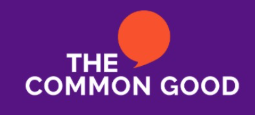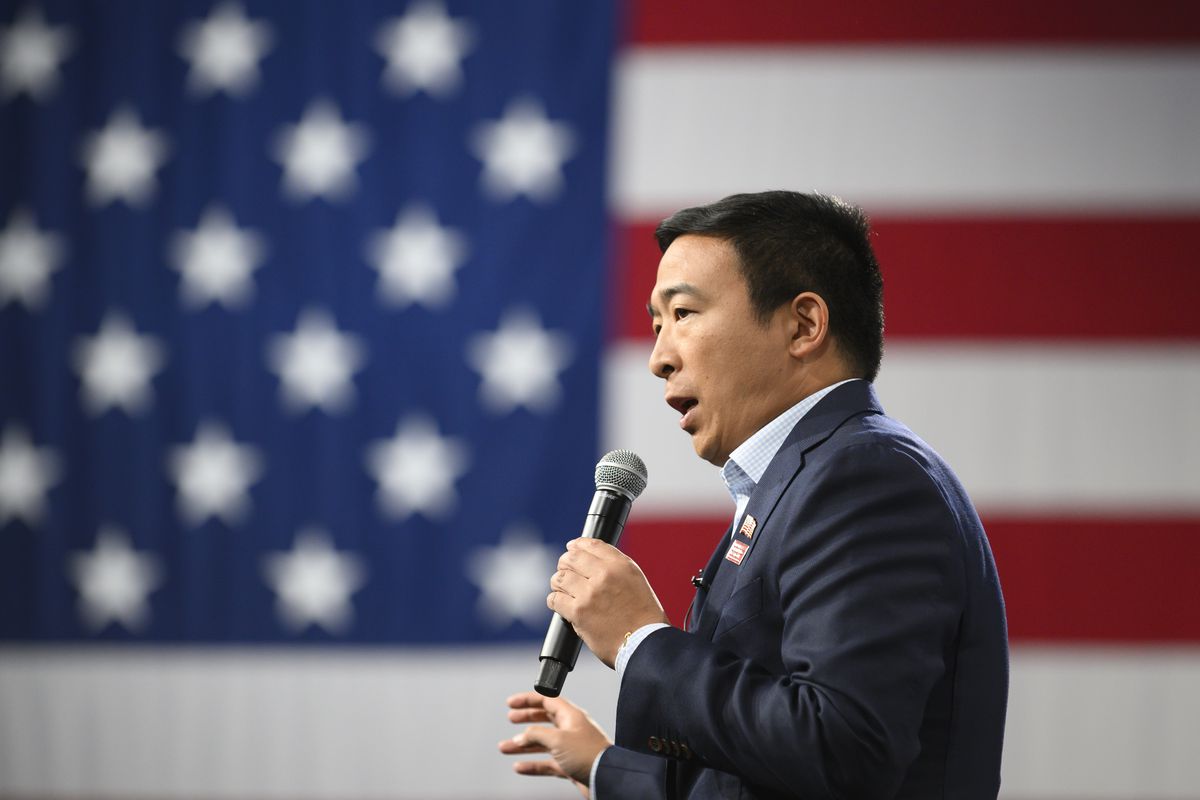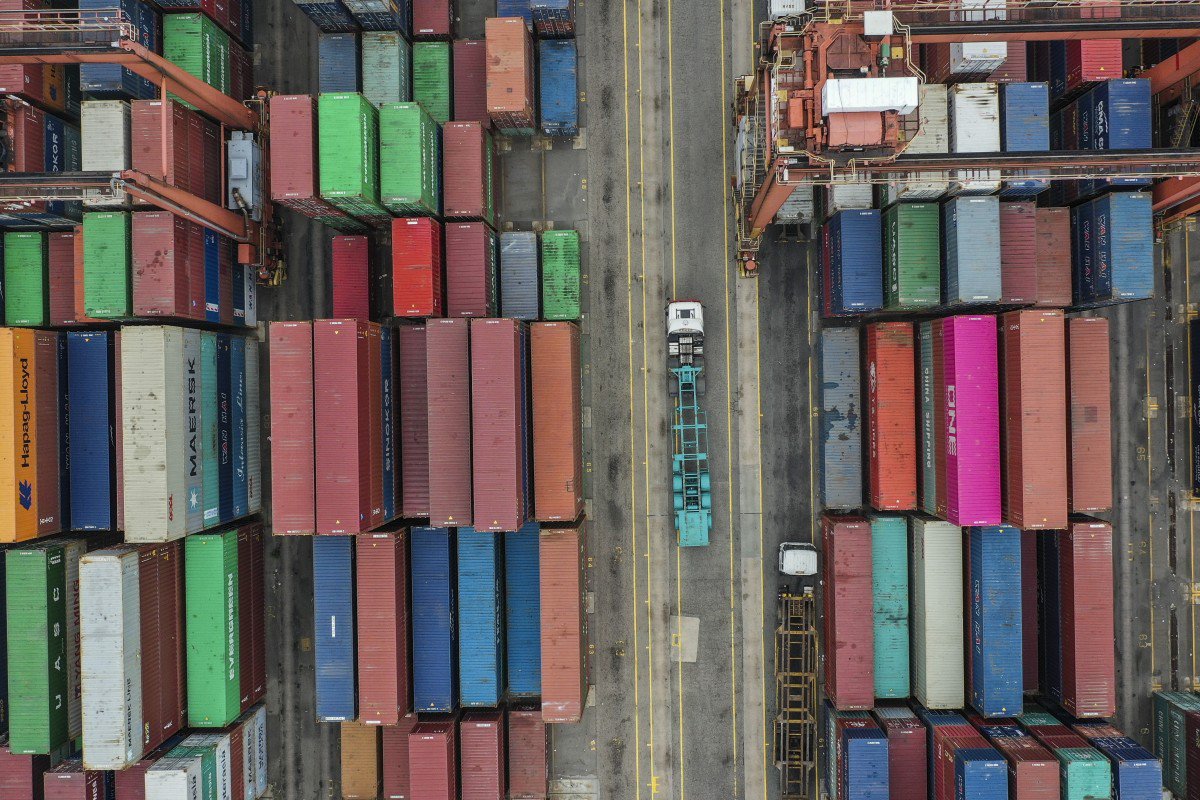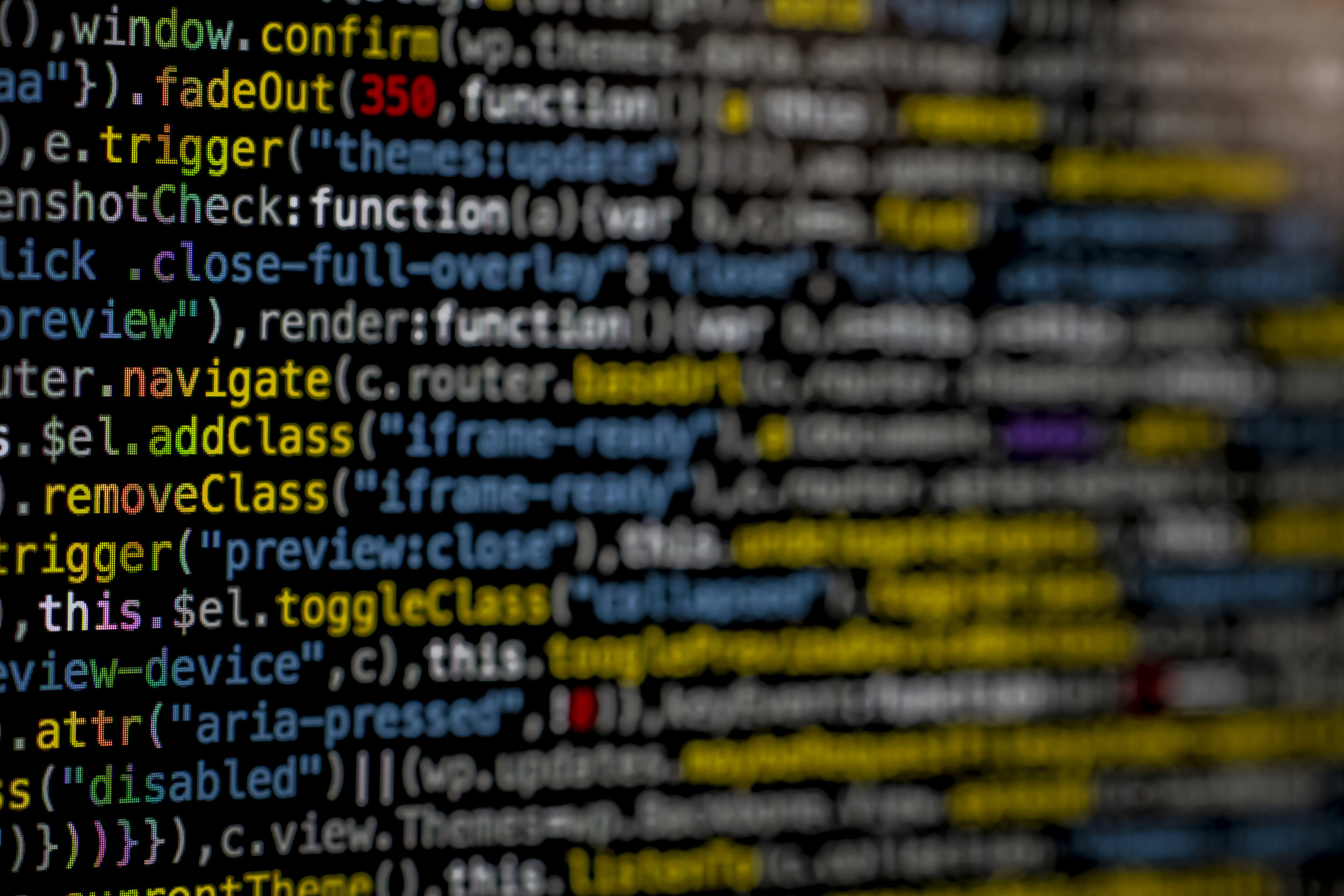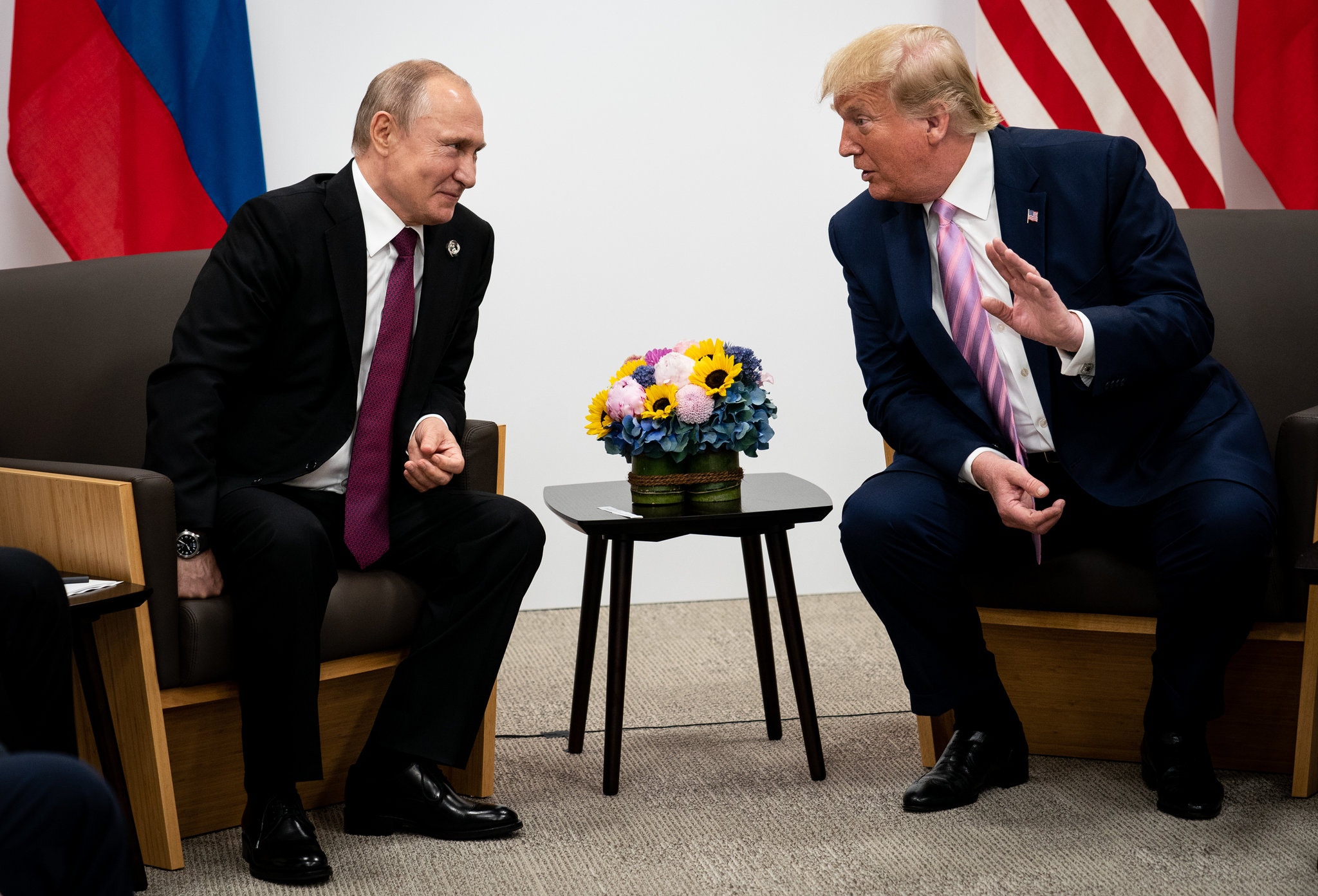
INSIGHTS/OPINIONS
Insights, 9/19/19
Today’s insights look nationally and internationally at war, activism, and economy. Learn more about what the drone attacks on Saudi Arabia spells for US foreign policy in the region, how climate activist Greta Thunberg handled her testimony in Congress, the chilling recent efforts by Sandy Hook Promise to fight against gun violence in schools, and how the US-China trade war is impacting the global economy…
Today’s insights look nationally and internationally at war, activism, and economy. Learn more about what the drone attacks on Saudi Arabia spells for US foreign policy in the region, how climate activist Greta Thunberg handled her testimony in Congress, the chilling recent efforts by Sandy Hook Promise to fight against gun violence in schools, and how the US-China trade war is impacting the global economy:
Pictured in header: Greta Thunberg testifying alongside TCG Changemaker Scholarship for Climate Change Action, Jamie Margolin.
“The missiles that struck last weekend in Saudi Arabia did not just destroy oil tanks. They also dealt the final blow to a doctrine that has been fading for years: the belief that the United States maintains a security umbrella able to protect the oil-rich Persian Gulf states from their enemies — and, especially, from Iran...the current Gulf crisis is not just about this administration and the pitfalls of its “maximum pressure” campaign against Iran. The United States has been disengaging from the Middle East since the catastrophe of the 2003 Iraq invasion. Now that shale has made America so much less dependent on the Middle East’s oil, it is hard to imagine any American president risking significant blood and treasure to defend Saudi Arabia.” - Robert F. Worth, New York Times, MORE
“Thunberg, who has made a habit of reprimanding adults in power on their climate complacency, has learned that the frustration, impatience, and fear of young people for the catastrophic future is a powerful tool. And she used it on Democratic members of the Senate Climate Change Task Force... “We don’t want to become politicians, we don’t want to run for office,” she said. “We want you to unite behind the science. I’m sorry, I know you’re probably trying very hard, and this is not personally to any one of you but generally to everyone. I know you’re trying, but just not hard enough.” - Ella Nilsen, Vox, MORE
“Familiar back-to-school supplies...are recast as emergency survival tools in a devastating new public service announcement from the Sandy Hook Promise, an anti-violence nonprofit founded by the parents of victims of the Sandy Hook shootings in 2012...A boy marveling over his new sneakers is running down the hallway not to dodge a hall monitor but a gunman. The ad reflects a grim reality for the network of survivors from the more than 228,000 students who have experienced a school shooting since the massacre at Columbine High School in 1999...Sandy Hook Promise co-founder Nicole Hockley [TCG American Spirit Awardee & Past Speaker], who’s 6-year-old son Dylan was killed in the Sandy Hook shooting, wants people to understand how they can recognize troubling behavior and intervene to stop school shootings before they happen...“I will never put a bulletproof backpack on my kid,” Hockley said...“I think it sends totally the wrong message: He’s not a soldier going off to war; he’s a boy going off to math class.” - Kim Bellware, Washington Post, MORE
“The global economy is set to grow at the slowest pace since the financial crisis, with business investment and trade hampered by an escalating dispute between the U.S. and China that could inflict even more damage over coming years, the Organization for Economic Cooperation and Development said Thursday...it now expects world output of goods and services to increase by 2.9% this year, the smallest annual rise since 2009 when the global economy was pushed into a recession by the near-collapse of the financial system. It expects growth to remain low in 2020 and possibly beyond if the trade conflict between the U.S. and China spills over into other aspects of their economic relationship.” - Paul Hannon, Wall Street Journal, MORE
Insights, 9/13/19
In this edition of insights, we cover the most recent Democratic Debate, the exit of John Bolton, and the current state of the Italian government.
In this edition of insights, we cover the most recent Democratic Debate, the exit of John Bolton, and the current state of the Italian government. Read the insights below, and, of course, we encourage you to read the articles in full and inform yourself on these important issues:
“Most of the candidates said they were eager for a detailed discussion. Yet none were ready to embrace the challenge entirely. Senator Elizabeth Warren...tried to avoid directly answering a question about whether middle-class taxes would go up under Medicare for All—even though Senator Bernie Sanders of Vermont, whose plan she’s endorsed, acknowledges they would...The moderators wanted to know, what is Joe Biden’s plan to counter China’s economic rise if not the Trans-Pacific Partnership, a trade deal he once helped sell but now opposes? How would Sanders get any of his major proposals through the Senate when he still supports keeping the filibuster in place? How would...Beto O’Rourke...build support in Congress for mandatory assault-rifle buybacks? The answers largely remain mysteries. Eventually the how can catch up to politicians.” - Edward-Isaac Dovere, The Atlantic, [MORE]
“Last month, Matteo Salvini, leader of Italy’s right-wing populist Lega party, attempted a Machiavellian power move...But whether the new government halts the rise of right-wing populism more than temporarily will depend on its ability to improve Italy’s standard of living and reverse some negative trends that have made the country one of the weaker links in the European Union. To fix all this would be a tall order for any government, let alone one composed of two parties—each riven by serious internal divisions—that were bitter rivals until a few weeks ago...if Italy does not begin to address the problems that paved the way for Salvini’s ascendancy, the country will have him to contend with whenever elections are held next.” - Alexander Stille, Foreign Affairs, [MORE]
“Donald Trump’s foreign policy has seesawed between threats to bomb enemies and moon-shot diplomacy. The president has flirted with nuclear war with North Korea, only to become the first sitting president to step onto its soil. He has strangled Iran’s economy and ordered bombers into the air, then offered talks. A troop surge in Afghanistan gave way to a proposed summit with the Taliban. John Bolton’s appointment as national security adviser in April 2018 seemed to tilt the scales towards the hawks. His acrimonious departure on September 10th—fired by presidential tweet—suggests that Mr. Trump is now in a dealmaking mood.” - The Economist, [MORE]
The views and opinions expressed in this article are those of the authors and do not necessarily reflect the official policy or position of The Common Good.
Insights, 9/9/2019
In this edition of insights, we take a look at the Democratic Presidential Candidate Elizabeth Warren, the collapse of the meeting with the Taliban the death of Robert Mugabe and the current state of Moscow.
In this edition of insights, we take a look at the Democratic Presidential Candidate Elizabeth Warren, the collapse of the meeting with the Taliban the death of Robert Mugabe and the current state of Moscow. Read the insights below, and, of course, we encourage you to read the articles in full and inform yourself on these important issues:
“The open secret of Ms. Warren’s campaign is that her big-money fund-raising through 2018 helped lay the foundation for her anti-big-money run for the presidency. Last winter and spring, she transferred $10.4 million in leftover funds from her 2018 Senate campaign to underwrite her 2020 run, a portion of which was raised from the same donor class she is now running against...her disavowal of closed-door events with the donor class has become an inextricable part of the DNA of her candidacy...It is the reason...she has the time to dedicate to hourslong selfie lines, to expand the map of states she can visit, and to call up small donors at random to thank them for giving, rather than pleading for more $2,800 donations from the well-to-do.” - Shane Goldmacher, New York Times, MORE
“Mr. Trump came up with an even more remarkable idea — he would not only bring the Taliban to Washington, but to Camp David, the crown jewel of the American presidency...What would have been one of the biggest headline-grabbing moments of his tenure was put together on the spur of the moment and then canceled on the spur of the moment. The usual National Security Council process was dispensed with; only a small circle of advisers was even clued in. And even after it fell apart, Mr. Trump took it upon himself to disclose the secret machinations in a string of Saturday night Twitter messages that surprised not only many national security officials across the government but even some of the few who were part of the deliberations.” - Peter Baker, Mujib Mashal,Michael Crowley, New York Times, MORE
“Robert Mugabe’s career can be divided into three main parts. First, as an extraordinarily skillful leader who managed to dominate a fractious nationalist movement opposed to the white-supremacist rule of Rhodesia’s Ian Smith. Second, as a legitimate if increasingly flawed ruler from independence in 1980 until his humiliating defeat in a constitutional referendum in 2000. And third, as a bloodstained dictator who ruled by rigging elections and torturing his opponents until his ousting...There followed a brief coda as a deposed, and dying, tyrant...Some in Zimbabwe will always admire him for his brilliance in liberating them in the 1970s from a regime that was undeniably racist...But the fundamental truth was that Robert Mugabe was one of Africa’s most evil dictators.” - The Economist, MORE
“Over the past couple of months, the city of Moscow has seen an unprecedented number of large, confrontational protests...the arrests continue to multiply, prison terms grow longer, and the brutality becomes more brutal….Why is the regime unleashing such spectacular and effortful fury on a few candidates for offices with no power and next to no chance of winning in rigged elections? A common interpretation is that the Kremlin is scared. Vladimir Putin’s popularity is slipping, and even a rigged election can stress the system to the point where its rusty structures give. This could well be true, but it is also true that the system Putin has built is so opaque that we will not know how thoroughly it has rusted until it actually collapses.” - Masha Gessen, New Yorker, MORE
The views and opinions expressed in this article are those of the authors and do not necessarily reflect the official policy or position of The Common Good.
Insights, 9/5/2019
In this edition of insights, we examine the threats of tribalism in politics, the U.K. and the democratic tests of their current time, and the current push of policy for regulations that would support stakeholders. Read the insights below, and, of course, we encourage you to read the articles in full and inform yourself on these important issues:
In this edition of insights, we examine the threats of tribalism in politics, the U.K. and the democratic tests of their current time, and the current push of policy for regulations that would support stakeholders. Read the insights below, and, of course, we encourage you to read the articles in full and inform yourself on these important issues:
“At this time, we can see storm clouds gathering. A polemicist’s role is not sufficient for a leader. A leader must display strategic acumen that incorporates respect for those nations that have stood with us when trouble loomed. Returning to a strategic stance that includes the interests of as many nations as we can make common cause with, we can better deal with this imperfect world we occupy together. Absent this, we will occupy an increasingly lonely position, one that puts us at increasing risk in the world…Unlike in the past, where we were unified and drew in allies, currently our own commons seems to be breaking apart. What concerns me most as a military man is not our external adversaries; it is our internal divisiveness. We are dividing into hostile tribes cheering against each other, fueled by emotion and a mutual disdain that jeopardizes our future, instead of rediscovering our common ground and finding solutions. All Americans need to recognize that our democracy is an experiment—and one that can be reversed. We all know that we’re better than our current politics. Tribalism must not be allowed to destroy our experiment.” - General Jim Mattis, former Secretary of Defense, Wall Street Journal, MORE
“In his first days as Britain’s prime minister, Boris Johnson has attempted some of the most tried-and-true tactics of the populist era. He sought a hostile takeover of his own party and governing institutions, moving to consolidate their power in his hands...Yet Mr. Johnson’s moves have, so far, blown up in his face. Parliament rose against him. His party revolted in sufficient numbers that he has lost his governing majority. While he has delighted his core supporters, there is scant evidence that voters are suddenly rallying behind him or against his opponents. Deep into the era of tear-it-all-down populism, in one of the countries most disrupted by that trend, the fail-safes meant to keep politicians in check are, for once, working as intended. In a time of faltering institutions and norms, they have held. Britain, for all its evident political chaos, is bucking global populist trends. While that might not hold for long, experts say it offers striking lessons for when and how democracy can work as intended — and when it doesn’t.” - Max Fisher, New York Times, MORE
“If the Business Roundtable is serious about stakeholder capitalism, and if responsible firms are to flourish and spread their benefits, it will not just decree principles according to which its firms will operate but will also push for laws and regulations that support firms’ ability to stand up for their stakeholders. These might include minimum-wage and benefits requirements and broader mandates to protect companies that want to do right by their workers from those competing companies that are ruthlessly pursuing shareholder interests. Or they might include rigorous restrictions on advertising and promotion practices, so firms who are honest and transparent are not placed at a competitive disadvantage. Or universally high capital standards on financial institutions, so that imprudent willingness to take on risk cannot be a competitive advantage.” - Lawrence Summers, former US Treasury Secretary, Washington Post, MORE
The views and opinions expressed in this article are those of the authors and do not necessarily reflect the official policy or position of The Common Good.
Insights, 8/30/19
In today’s insights, we address the future of the Hong Kong protest, 2020 democratic candidate Andrew Yang, the growing tension in the Kashmir region of India.
In today’s insights, we address the future of the Hong Kong protests, 2020 democratic candidate Andrew Yang, and the growing tensions in the Kashmir region of India. Read the insights below, and, of course, we encourage you to read the articles in full and inform yourself on these important issues:
“The Hong Kong protesters should recognize that, like Solidarity in Poland, they risk a major defeat if their actions spark a violent crackdown, probably setting back their cause by at least several years. But the Communist authorities should recognize that, even if they prevail by the use of force in the short term, they may be inviting a far larger backlash in the future. Poland’s declaration of martial law did nothing to address the long list of legitimate grievances of its people; in fact, it forced the Solidarity movement underground, only to resurface with unstoppable momentum in 1989. Chinese leaders always claim to be able to take the long-term view. If they do so now, they should recognize that they desperately need to come up with a nonviolent settlement—for their own good. That will mean convincing the protesters that their aspirations will be treated seriously, with all the key players invited to participate in crafting a genuine Hong Kong solution.” -Andrew Nagorski, Politico, MORE
“Yang is a 44-year-old entrepreneur from New York and a father of two young sons who’s never run for any office of any kind before this, and whose campaign is fueled by a deeply dystopian view of the near future...a pillar of a platform that can come off as a gimmick...and a zeitgeisty swirl of podcasts, GIFs, tweets and memes. Last week, as a successful governor from a major state dropped out and the bottom half of the bloated field continued to flounder, Yang passed the 200,000 mark for unique donors—outpacing an array of name-known pols. He’s gotten contributions, on average $24 a pop, from 88 percent of the ZIP codes in the country, and he’s on track, he says, to raise twice as much money this quarter as he did last quarter...At the heart of Yang’s appeal is a paradox. In delivering his alarming, existentially unsettling message of automation and artificial intelligence wreaking havoc on America’s economic, emotional and social well-being, he cracks jokes...And his campaign coffers are chock-full of small-number contributors and even $1 donors.”- Michael Kruse, Politico, MORE
“India has come under increasing criticism for its decision in early August to revoke Kashmir’s autonomy and lock down the area, arresting thousands and cutting off phone and internet service to millions of people..India’s moves could further inflame the area, possibly even stoking a major conflict between the two archrivals [Pakistan and India], both of which have nuclear arms...Critics said that even under India’s tough public safety laws, the lockdown was illegal and that Mr. Modi was bending the Indian legal system to cut off any possible criticism in Kashmir and silence anyone with a voice. On Friday, the streets of Kashmir’s biggest towns were deserted...The authorities routinely beef up security on Fridays, but residents said this Friday had a much heavier presence than usual. Nearly all businesses were closed, out of a pervasive sense of fear...Kashmiris are growing weary, feeling under siege, and now they are worried about getting caught in the middle of a potential war between India and Pakistan.”-Jeffrey Gettlemen, The New York Times, MORE
The views and opinions expressed in this article are those of the authors and do not necessarily reflect the official policy or position of The Common Good.
Compiled by Audrey Kuhnle
Insights, 8/19/19
In this edition of insights, we are focusing on our global sphere, the economy, and climate change.
In this edition of insights, we are focusing on our global sphere. Focusing on the intertwining relationships between CEOs and politicians, shifts in our economic natures, climate change and the crisis it is presenting, the possible push of our global economic to a recession, and the chances of autocracies nations shifting to democracy. Read the insights below, and, of course, we encourage you to read the articles in full and inform yourself on these important issues:
“The Business Roundtable today made a small, symbolic but significant move: 181 of the nation’s top CEOs agreed that driving shareholder value is no longer their sole business objective....They expanded their mission beyond mere wealth creation to include everything from taking care of employees to helping their communities. This shift, spearheaded by BRT Chairman and JPMorgan Chase CEO Jamie Dimon, reflects the growing pressure from employees, social media and customers to do more than increase stock prices...CEOs need to be de facto politicians, thanks to several unambiguous social trends: Millennial employees demand their employers stand for something beyond profit; It is getting harder to recruit and retain talent, especially tech talent, if profit is the only objective; A rising number of consumers make purchasing decisions based on a company's social purpose.; The media applies a lot more pressure on CEOs to take positions on political topics, such as race and immigration; Every CEO/company is vulnerable to split-second, social media uprisings. Undefined CEOs and companies find it impossible to push back.” - Jim VandeHei, Axios, MORE
“Global markets were seized by fear last week that trade wars were slowing growth in Germany, China and the United States. But the story here is bigger than President Trump and his tariffs. The postwar miracle is over. Since the financial crisis of 2008, the world economy has been struggling against four headwinds: deglobalization of trade, depopulation as labor forces shrink, declining productivity and a debt burden as high now as it was right before the crisis. No major economy is growing as fast as it was before 2008... In almost every country, the national discussion focuses on what must be done to revive growth and ignores the fact that the slowdown is driven by forces beyond any one government’s control. Instead of dooming ourselves to serial disappointment and fruitless stimulus campaigns, we need to redefine economic success and failure.” - Ruchir Sharma, Chief Global Strategist, Morgan Stanley, New York Times, MORE
“Unsustainable land use and greenhouse gas emissions are delivering a one-two punch to natural ecosystems that are key to the fight against global climate change. And without sweeping emissions cuts and transformations to food production and land management, the world stands no chance of staving off catastrophic planetary warming. That’s according to a dire new United Nations assessment of the complex relationship between terrestrial landscapes and climate change. The report from the Intergovernmental Panel on Climate Change, or IPCC, the leading U.N. body of researchers studying human-caused global warming, warns that the unfolding crisis poses a serious threat to global food security.” - Chris D’Angelo, Huffington Post, MORE
“When assumptions about how the world works are shattered, a global downturn is often the result. The world learned in the early 1970s that the era of cheap oil was over, in the early 1980s that countries could default, and a decade ago that American mortgages and global banks aren’t safe. Today, a similar rethink of globalization is under way. From Washington to Buenos Aires, nations’ mutually reinforcing commitment to open markets is disintegrating. In response, investors are rearranging portfolios, businesses are rethinking investments and policy makers are struggling to respond—all of which are pushing the global economy closer to recession….For the past two years, the U.S. and world economies shrugged off nationalism and populism. Protectionism was contained and more than offset by positives such as Trump’s tax cut and deregulatory drive. It can no longer be ignored: Businesses and investors, unsure of what if any rules will govern international commerce, are retreating from risky investments.” - Greg Ip, Wall street Journal, MORE
“It has been a good decade for dictatorship. The global influence of the world’s most powerful authoritarian countries, China and Russia, has grown rapidly. For the first time since the late nineteenth century, the cumulative GDP of autocracies now equals or exceeds that of Western liberal democracies...Conversely, it has been a terrible decade for democracy. According to Freedom House, the world is now in the 13th consecutive year of a global democratic recession. Democracies have collapsed or eroded in every region, from Burundi to Hungary, Thailand to Venezuela. Most troubling of all, democratic institutions have proved to be surprisingly brittle in countries where they once seemed stable and secure...scholars used to hope that it was only a matter of time until some of the world’s most powerful autocracies would be forced to democratize, they now concede too readily that these regimes have permanently solved the challenge of sustaining their legitimacy.” - Yascha Mounk [Past TCG Speaker], Foreign Affairs, MORE
The views and opinions expressed in this article are those of the authors and do not necessarily reflect the official policy or position of The Common Good.
Insights, 8/5/2019
In today’s edition of insights, we draw attention to domestic terrorism, foreign-policy issues, and climate change.
In today’s edition of insights, we draw attention to domestic terrorism, foreign-policy issues, and climate change. Insights on gun violence rising along with domestic terrorism, the requirement of stronger foreign policy and reponses, engagement with china, and the American belief in climate change. Read the insights below, and, of course, we encourage you to read the articles in full and inform yourself on these important issues:
“Two mass shootings within 24 hours in El Paso and Dayton, days after the Garlic Festival killings. Three months after Virginia Beach, six months after Aurora, nine months after Thousand Oaks, 10 months after Tree of Life, 15 months after Santa Fe High School, 18 months after Parkland and in the wake of larger horrors like the Vegas concert and Pulse nightclub massacres... God save us all, sir. People all across the nation are scared; many feel like the country is spinning out of control. They’re looking to their leaders for more than prayers. America is terrified.” - NY Post, MORE
“Violence committed by white men inspired by an extremist ideology makes up a growing number of domestic terrorism cases, according to the Federal Bureau of Investigation. Of about 850 current domestic terrorism cases, 40% involve racially motivated violent extremism and a majority of those cases involve white supremacists, the FBI said…Preventing—and understanding—such crimes has been vexing for federal law-enforcement officials, who in recent years had been more focused on the threat posed by radical Islam and homegrown terrorists who pledge fealty to Islamic State.” - Dan Frosch, Zusha Elinson and Sadie Gurman, Wall Street Journal, MORE
“More than 75 percent of mass shooters have alerted others to their plans, according to a U.S. Department of Homeland Security report. Nicole Hockley [TCG Past Speaker], mother of slain son Dylan, killed in Newtown, CT, co-founder of Sandy Hook Promise, urged community members to speak up if they suspect someone might be planning an act of violence. ‘It is critical to know that there are signs - like a hate manifesto, social media posts, and notable fascination with guns - that point to increased potential for violence. We must stay vigilant and say something when we see these warning signals.’” - Julia Perkins, CT Post, MORE
“Today, the United States doesn’t need a grand [foreign policy] strategy. Instead, U.S. leaders need to identify their priorities and craft strategies for each of them. The foreign-policy issues that matter to the lives of Americans—from climate change to pandemic diseases to cyberattacks—increasingly require global responses. And leaders need to convince the American people that these challenges affect them directly and that tackling them requires robust U.S. engagement in the world.” - Michael H. Fuchs, former Deputy Assistant Secretary of state for East Asian and Pacific affairs, Foreign Policy, MORE
“A failure to connect competitive means to clear ends will allow U.S. policy to drift toward [U.S.-Chinese] competition for competition’s sake and then fall into a dangerous cycle of confrontation...But in the rush to embrace competition, policymakers may be substituting a new variety of wishful thinking for the old. The basic mistake of engagement was to assume that it could bring about fundamental changes to China’s political system, economy, and foreign policy. Washington risks making a similar mistake today, by assuming that competition can succeed in transforming China where engagement failed—this time forcing capitulation or even collapse.” - Kurt Campbell, former U.S. Assistant Secretary of State for East Asian and Pacific Affairs, and Jake Sullivan, former National Security Adviser to the U.S. Vice President, Foreign Affairs, MORE
“President Trump has set the tone for Republicans by deriding climate change, using White House resources to undermine science and avoiding even uttering the phrase. Outside of a handful of states such as Florida, where addressing climate change has become more bipartisan, analysts said Republican politicians were unlikely to buck Mr. Trump or even to talk about climate change on the campaign trail at all, except perhaps to criticize Democrats for supporting the Green New Deal. ‘Americans believe climate change is real, and that number goes up every single month,’ Frank Luntz [TCG Past Speaker], a veteran Republican strategist, told a Congressional panel recently. He also circulated a memo to congressional Republicans in June warning that climate change was ‘a G.O.P. vulnerability and a G.O.P. opportunity.’” - Lisa Friedman, New York Times, MORE
The views and opinions expressed in this article are those of the authors and do not necessarily reflect the official policy or position of The Common Good.
Insights, 7/31/19
In this edition of insights, we address issues of budgetary spending, cyber resilience, data breaches, and Iranian negotiations.
In this edition of insights, we address issues of budgetary spending, cyber resilience, data breaches, and Iranian negotiations. Read the insights below, and, of course, we encourage you to read the articles in full and inform yourself on these important issues:
“You often hear that in these polarized times, Republicans and Democrats are deadlocked on almost everything. But the real scandal is what both sides agree on. The best example of this might be the defense budget. Last week, the Democratic House, which Republicans say is filled with radicals, voted to appropriate $733 billion for 2020 defense spending. The Republicans are outraged because they — along with President Trump — want that number to be $750 billion. In other words, on the largest item of discretionary spending in the federal budget, accounting for more than half of the total, Democrats and Republicans are divided by 2.3 percent. That is the cancerous consensus in Washington today.” - Fareed Zakaria [Past TCG Speaker], Washington Post, MORE
“The time for new cyber strategies is over. The United States should work to achieve ‘cyber resilience,’ in which we actively manage the risk posed by even the most persistent nation-state actors...this year the Cyber Solarium Commission, a bipartisan national commission established to create a comprehensive U.S. cyber policy, is hard at work trying to ‘provide strategic guidance and policy recommendations on how to defend ourselves against cyber threats.’ The Solarium is the latest effort in a long list of similar commissions intended to come up with a new approach to solving our cyber insecurity.” - Rob Knake, Council on Foreign Relations, MORE
“In just the last month the Federal Trade Commission has brokered settlements with Facebook, Google and Equifax over data breaches and mishandling of consumer information. If you squint, it looks a bit like justice served. Together, these weak enforcements reveal a structural asymmetry between data brokers and the government. The old enforcement mechanisms of regulatory agencies (fines, public shaming) are no match for the size of these companies and the unprecedented amount of lucrative personal information they possess. In this way, the feds seem only to partially grasp the business models of the companies they seek to regulate. Facebook, Google and Equifax all derive their profit and power from collecting data and controlling its supply in an economy where demand for data is insatiable. Any effort then to check that power — or curb those profits — can come only from changing the ways these companies amass our personal information.” - Charlie Warzel, New York Times, MORE
“Iranian officials now appear to be negotiating—and rather than using back-channels, they’re doing it in plain sight. Iranian officials, most notably the foreign minister, have been angling for diplomacy with Washington. And Tehran’s provocations in the Gulf, if you look past the breathless headlines, can be seen as a crucial part of their good cop-bad cop negotiating strategy—one that reinforces persuasion with intimidation. Taken together, the signals suggest that Iranians are setting the table for talks, and if President Donald Trump is serious about wanting to ‘make Iran great again,' he should make the most of this opportunity before tensions spiral out of control.” - Suzanne Maloney, Politico Magazine, MORE
The views and opinions expressed in this article are those of the authors and do not necessarily reflect the official policy or position of The Common Good.
Insights, 7/26/19
In today’s edition of Insights, we focus on democracy - how people are fighting for it abroad, how ours is running today, and what may impact its longevity.
In today’s edition of Insights, we focus on democracy - how people are fighting for it abroad, how ours is running today, and what may impact its longevity. With expert takes on the Hong Kong protests and their repercussions for the Chinese government, how Supreme Court rulings will impact the upcoming election, what the vast 2020 Democratic Presidential candidate field says about the party, and the historical roots of our present economic issues. Read the insights below, and, of course, we encourage you to read the articles in full and inform yourself on these important issues:
“[For] China’s hard-line leader, Xi Jinping, the reaction was a humiliating rejection of his basic premise that Western liberties and independent judiciaries are incompatible with the “people’s republic.” Yet so long as the protests were big but peaceful, he seemed content to have his captive media grumble about “Western” incitement and otherwise inform the mainland public as little as possible about what was going on in Hong Kong. The Beijing-backed leader of Hong Kong, Carrie Lam, was left to retreat, issuing public apologies and then indefinitely suspending consideration of the contentious legislation. All that changed on Monday, the day Hong Kong’s Beijing-endorsed officials were to make their annual demonstration of fealty to China at ceremonies marking the anniversary of the handover of sovereignty from Britain to China. A small group of masked protesters broke away from a peaceful march and attacked the legislature, smashing down glass doors, destroying official portraits and spray-painting slogans in the formal chamber. It will be weeks before the legislators can meet there again.” - Editorial Board, New York Times, MORE
“The Supreme Court is already poised to drop some big political bombshells right into the heat of the 2020 campaign. And there are even more waiting in the wings. Why it matters: The court will likely hand down rulings on some of the most contentious issues in American politics just a few weeks before the Democratic convention. They'll be a reminder of just how often the justices effectively have the final say — and that 2020 is a race to pick the next justices. The court’s next term will “probably help to crystalize people’s thinking in the political season about the importance and the role of the court,” said Leonard Leo, the executive vice president of the Federalist Society and a key adviser on President Trump’s Supreme Court nominations.” - Sam Baker, Axios, MORE
“The slate of 24 contenders is too unwieldy for a constructive debate, many activists and strategists say, and too large for most voters to follow. And with a leadership vacuum at the top of the party, there is no one to elevate candidates with an endorsement, or help steer third-tier candidates out of the race when they’ve reached their plausible expiration date.” - Reid Epstein, New York Times, MORE
“Today’s woes have their roots in the 1990s, when policymakers set the world on its current, hyperglobalist path, requiring domestic economies to be put in the service of the world economy instead of the other way around. In trade, the transformation was signaled by the creation of the World Trade Organization, in 1995. The WTO not only made it harder for countries to shield themselves from international competition but also reached into policy areas that international trade rules had not previously touched: agriculture, services, intellectual property, industrial policy, and health and sanitary regulations. Even more ambitious regional trade deals, such as the North American Free Trade Agreement, took off around the same time.” - Dani Rodrik, Foreign Affairs, MORE
The views and opinions expressed in this article are those of the authors and do not necessarily reflect the official policy or position of The Common Good.
Insights, 7/18/19
In today’s edition of Insights, we tackle the issues of freedoms in Hong Kong, the immigration debate within the U.S., and the struggles of the U.S. congress.
In today’s edition of Insights, we tackle the issues of freedoms in Hong Kong, the immigration debate within the U.S., and the struggles of the U.S. congress. Read the insights below, and, of course, we encourage you to read the articles in full and inform yourself on these important issues:
“At root, the confrontation with the West is not about trade. It is about two fundamentally incompatible political systems, two different understandings of what modern civilization is...The youth of Hong Kong, who have grown up well informed by the internet, are keenly aware of the stark alternatives before them. They are accustomed to freedom, personal rights and access to information. They know what they want, what they are defending and the nature of the opposition they face. They have watched the freedoms of Hong Kong — in the media, education, housing, commerce and elsewhere — slowly slip away, and they know that the Communist Party stops at nothing in pursuing its interests.” - Ai WeiWei [TCG Past Speaker], New York Times, MORE
“The country is being riven by a seething immigration debate, left unresolved by successive administrations and Congresses...The immigration system is broken and needs fixing, yet the emotions now being stirred probably are making it less likely, not more likely, that it will be fixed any time soon... The president’s attack on the congresswomen had significant racial overtones, because all four are women of color. But the policy debate running beneath the charged rhetoric is over immigration. The nuts and bolts of the immigration problem now riveting the country are relatively simple. Rampant social violence and economic dislocation are compelling working men and women in Central America to seek a way out. Current immigration law and court rulings have created a muddle over when and how such people might seek asylum in the U.S., and what should be done with them when they do so. ”- Gerald F. Seib [TCG Past Speaker], Wall Street Journal, MORE
“....Congress is not a place where you achieve radical progress — certainly not in divided government. It’s a place where you work at it and work at it and don’t get everything you want. The progressives act as though anyone who dares disagree with them is bad. Not wrong, but bad, guilty of some human failing, some impurity that is a moral evil that justifies their venom….In the age of Trump, there is no more stupid proposition than that Nancy Pelosi is the problem. If A.O.C. and her Pygmalions and acolytes decide that burning down the House is more important than deposing Trump, they will be left with a racist backward president and the emotional satisfaction of their own purity.” - Maureen Dowd, New York Times, MORE
The views and opinions expressed in this article are those of the authors and do not necessarily reflect the official policy or position of The Common Good.
Insights, 7/4/19
In this edition of insights, we adventure into the topics of a liberal democracy, President Trump’s July 4th celebration, U.S. trade negotiations with China, and overcrowding and other issues at Customs and Border Protection Facilities.
In this edition of insights, we adventure into the topics of a liberal democracy, President Trump’s July 4th celebration, U.S. trade negotiations with China, and overcrowding and other issues at Customs and Border Protection Facilities. Read the insights below, and, of course, we encourage you to read the articles in full and inform yourself on these important issues:
“The Russian president claims liberalism is obsolete. He is wrong. It is more necessary than ever even as Trump scoffs at it. But America’s ability to promote liberal democracy cannot be served by what Ambassador Bill Burns [TCG Past Speaker] calls ‘a State Department in which officers are bludgeoned into timidity, or censor themselves, or are simply ignored.’” - Roger Cohen [TCG Past Speaker], New York Times, MORE
“Since President Donald Trump announced his proposal for a military display and presidential speech on the National Mall, Trump’s critics across the political spectrum, have reached a consensus: The president’s intrusion into Independence Day is a hijacking. New York Times columnist Michelle Cottle complains that Trump is "trampling a longstanding tradition of keeping these events nonpartisan — apolitical even — and focused on bringing the nation together.” The same sentiment came from...conservative Trump skeptics like radio host Charlie Sykes and former GOP Congressman David Jolly [TCG Past Speaker]...By one measure, the criticism is overwrought. There have been presidents who've appeared during celebrations at the Capitol, most recently Harry Truman in 1951...Celebrations of the Fourth do not tend to benefit both parties equally, and here, Trump may well be demonstrating his instinctive grasp of which way a big event tends to nudge the populace.” Jeff Greenfield, Politico Magazine, MORE
“In its trade negotiations with China, the U.S. should have all the leverage. It buys far more from China than vice versa, is sole supplier of numerous critical technologies and commands more loyalty from the rest of the world. But China brings one powerful advantage of its own: clarity of purpose. Though its negotiating priorities change, over the decades its goal has remained the same: moving steadily up the development ladder while remaining a one-party state. The U.S. ban on supplying key inputs to Huawei Technologies Co. was an existential threat to the next stage in that development, competing globally in the world’s most advanced technologies. Thus, when President Xi Jinping met President Trump on the sidelines of the G-20 summit in Osaka, Japan, this past weekend, his main condition for restarting negotiations was to lift the ban. U.S. leaders, for their part, have long been divided over whether to treat China as a partner that can be managed or a rival that must be ostracized. The Trump administration is itself split, and the president’s decision to give Huawei a temporary reprieve has left the endgame as muddy as ever.” - Greg Ip, Wall Street Journal, MORE
“A new government report describes in detail the prolonged detention, overcrowding and security risks at Customs and Border Protection (CBP) facilities in the Rio Grande Valley, including facilities housing children and families. The report, published by the Department of Homeland Security Office of the Inspector General, included details of visits to five detention facilities and two ports of entry, including several photos. In one photo, 88 men are huddled in a cell with a maximum capacity of 41. The report described the situation as “a ticking time bomb,” detailing the scenes witnessed.” - Jasmine Aguilera, Time, MORE
The views and opinions expressed in this article are those of the authors and do not necessarily reflect the official policy or position of The Common Good.
Insights, 6/28/19
This week, we are drawing attention to three issues. The recent Supreme Court decision on Gerrymandering, the first Democratic debates for the 2020 Presidential race, and how the present administration has molded our relationship with China.
This week, we are drawing attention to three issues: the recent Supreme Court decision on Gerrymandering, the first Democratic debates for the 2020 Presidential race, and how the present administration has molded our relationship with China. Read the insights below, and, of course, we encourage you to read the articles in full and inform yourself on these important issues:
“The rulings by the Supreme Court on Thursday in bitterly contested battles over partisan gerrymandering and the addition of a citizenship question to the 2020 census grappled with issues fundamental to the nation’s democracy: How power is allocated, and ultimately, how much of a voice the American people have in selecting their leaders. But far from settling these questions, the court has unleashed even higher-pitched and partisan struggles over once-settled aspects of the country’s governance, placing greater pressures on the nation’s political system.” - Michael Wines, New York Times, MORE
“Messy as they were, the first set of Democratic presidential debates did their job: They helped sort out the party’s giant field of candidates. They showed there’s a distinct progressive camp, which is colliding, noisily, with a centrist camp. They also identified the main issue—health care—that divides these two camps. Yet the proceedings left one big question hanging: Did the debates help the party start to win over the kinds of working-class voters Democrats need to beat President Trump? Or, by pushing the party more to the left, did they do the opposite?” - Gerald Seib [TCG Past Speaker], Wall Street Journal, MORE
“The rivalry between the United States and China is here to stay. But the Trump administration is bringing the wrong tools to the contest, applying blunt trade-war tactics reminiscent of the nineteenth century instead of crafting a strategy to keep the United States the world’s economic and technological leader in the twenty-first. Defensive protectionism will not meet the China challenge; only domestic revival can do that. Restoring the United States’ global standing and revitalizing its economy will require an ambitious strategy that doesn’t rely solely on changing Chinese behavior so much as on preparing the United States to compete...The Trump administration is right that China’s high-tech mercantilism threatens U.S. economic competitiveness and national security. China aims to replace the United States as the global leader in several high-tech sectors. The Trump administration is also right that the United States should push back...Tariffs were always a poor choice to change Beijing’s behavior...They are alienating U.S. allies. And, analysts warn, they are increasing the risk of a global recession. There’s a better solution.” - Tom Donilon, former National Security Adviser, Foreign Affairs, MORE
The views and opinions expressed in this article are those of the authors and do not necessarily reflect the official policy or position of The Common Good.
TCG insights and opinions aim to highlight interesting and important thoughts, opinions, and issues, written by experts and our own team.
